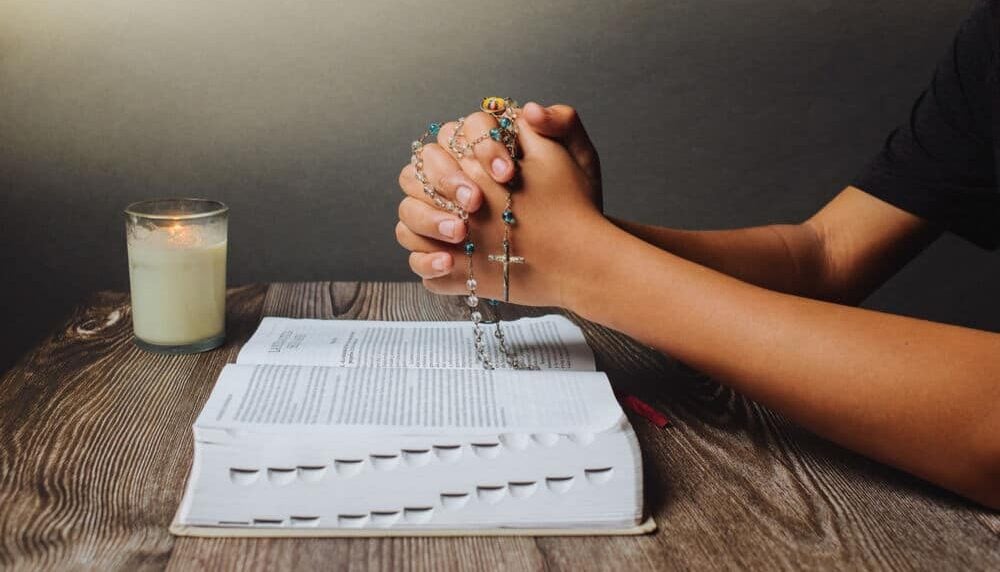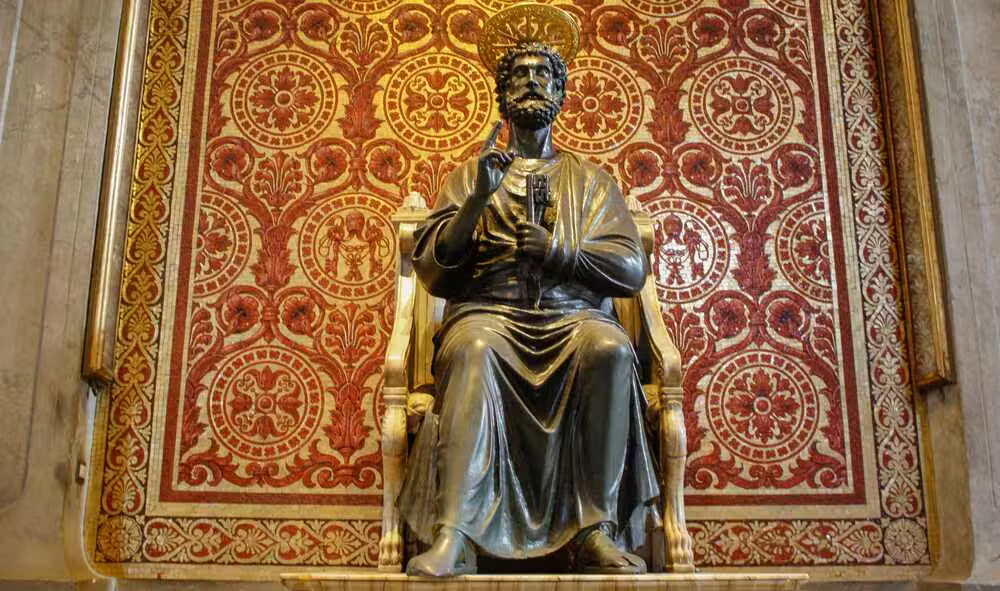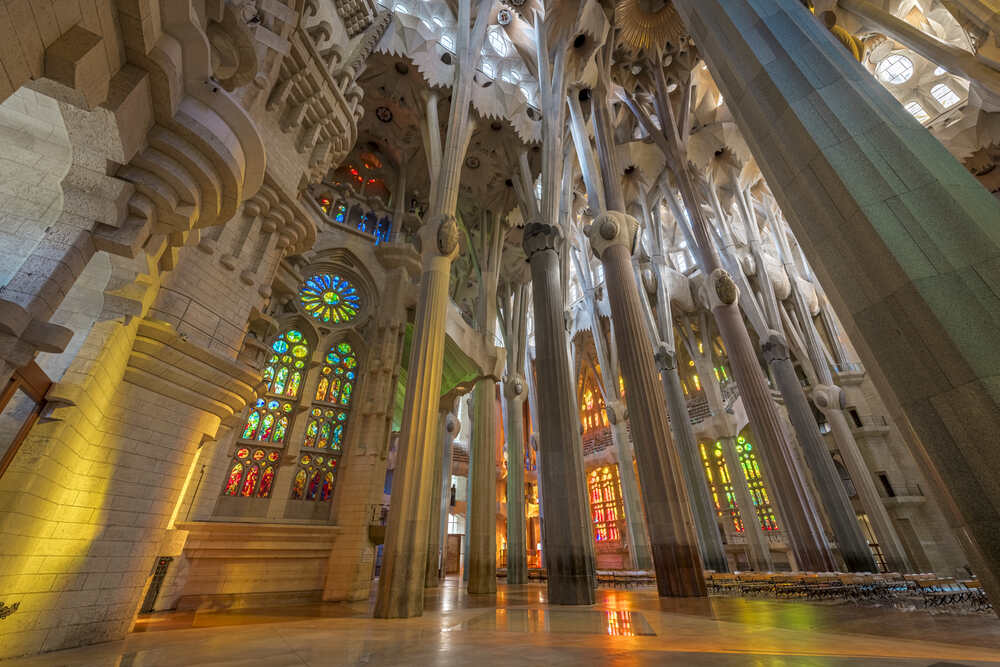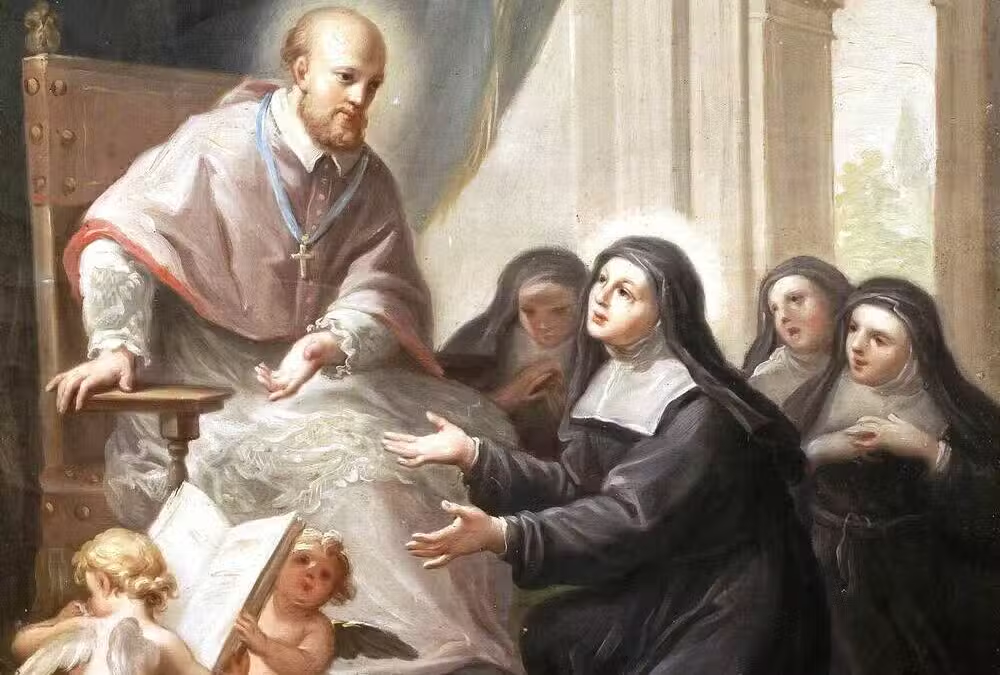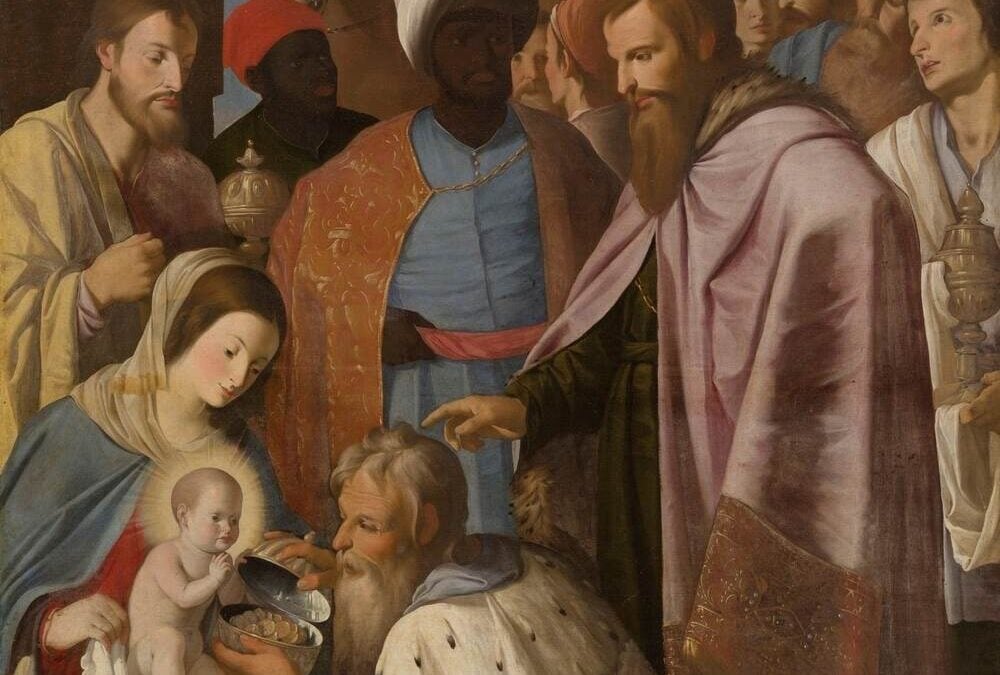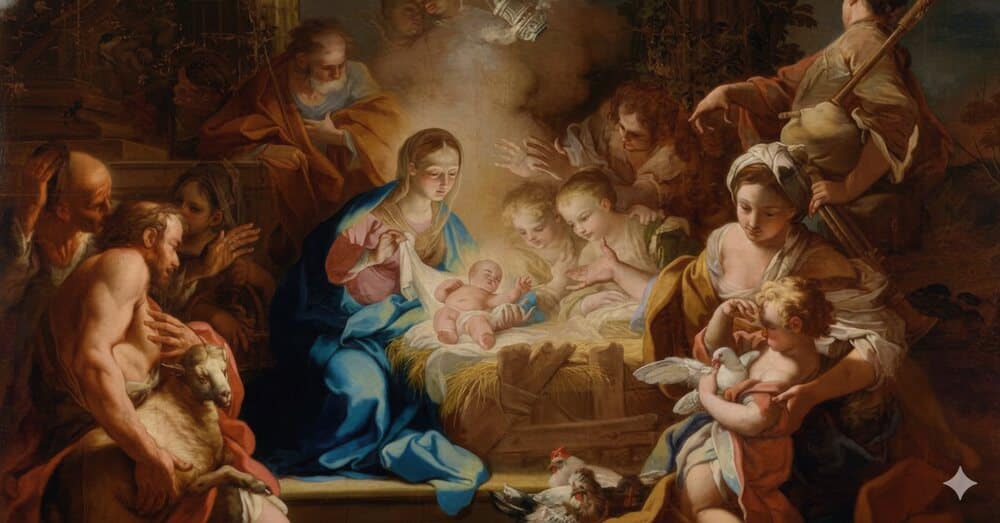Editor’s note: The following is adapted from a Lenten mission talk given by Dr. Michael A. Dauphinais at Ave Maria Parish, Florida, on March 31st, 2025. The video is available at https://vimeo.com/1070054975
Dr. Michael A. Dauphinais serves as the Chair of the Theology department at Ave Maria University. He works as the Father Matthew Lamb Professor of Catholic Theology and co-director of the Aquinas Center for Theological Renewal. He is also the host of the Catholic Theology Show podcast, available on your preferred podcast provider.
You can use the Catholic Mass Times app to find the nearest Catholic church with Mass, Confession, and Adoration schedules. It will surely help you! Download it now.
It’s a joy to be with you. About two and a half months ago, Father Vidal asked me to give these talks, and on the very first day, I sat down and sketched a three-day outline. I wanted to follow Dante’s story out of our hellish exile, through our purgatorial challenges, and unto our heavenly peace.
When I was thinking through what to say, I realized I needed to give a Lenten mission for myself. I needed to journey home to the Father. So I developed this retreat to speak to the very things I need to hear—and that’s what I want to share with you tonight.
Since sketching the outline, I’ve spent many days working and re-working these talks. My wife can testify—even during spring break, when we were up in Michigan at the hospital bedside of our grandson who had just undergone open heart surgery—I would steal away for a little, still thinking, “What can I say? What would be of worth? What might help us journey home to the Father?”
I ask that you not compare what I’m going to share but that you try to identify with it. I’m not asking for your agreement, though that’s yours to give or withhold—but I am asking for your understanding. Let’s begin.
Waking Up with Amnesia
Close your eyes for a moment and imagine waking up surrounded by people you don’t recognize. They’re telling you they’re your father, your child, your husband—but you don’t remember them. You don’t even remember who you are. But you do remember one thing: when you first came to consciousness, someone came into the room and whispered, “People are going to come in and tell you to trust them. Don’t trust anyone.”
What would you do?
Or imagine one of your loved ones waking up in a hospital bed. You’ve been told they just regained consciousness. You walk in—but they don’t recognize you. You plead with them, “Trust me, I can help you,” but they can’t. Someone, too, snuck into the room first and whispered, “Don’t trust anyone.” They don’t even know who they are.
Now imagine that same scenario, except you wake up not only with amnesia but handcuffed to the bed. You’re not just in a hospital, you’re in a prison. Then someone walks in after everyone else, unlocks your handcuffs, leaves the key on the table, and says, “Come, follow me.”
We may not know exactly how we’d react in those situations—but we do know what God would do if His children woke up with amnesia. If they forgot who He was, if they forgot who they were, He would come to rescue them. And He is doing just that.
But if we listen to that voice—the one that says, “Don’t trust God, don’t trust anyone, do it on your own”—we end up living in a state of self-exile, separated from God.
The Journey Home to the Father
Today, I want to reflect on this journey home to the Father, where we discover radical trust in God and His plans.
What do I mean by “radical”? I mean a trust so complete in God that I don’t need anything to be different. I don’t need my job to be different, my children, my spouse, my parents, my country, the Church, or the bishop—I don’t need anything to be different in order to trust God completely.
Radical faith. Radical hope. Radical love.
- Radical faith: Believing in everything God has revealed right now so completely that I don’t need anything to be different.
- Radical hope: Confidence that God will bring me home so completely that I don’t need anything to be different.
- Radical love: Loving God, my neighbor, and myself so completely that I don’t need anything to be different.
This is a Lenten journey—from doubt to faith, despair to hope, resentment to love, from our hellish exile to our heavenly home.
As St. Thérèse of Lisieux said: “The world is thy ship and not thy home.”
What Is Faith?
St. John Paul II wrote that the Gospel is “the initial ardent proclamation by which a person is one day overwhelmed and brought to the decision to entrust himself to Jesus Christ by faith.”
Have you ever been overwhelmed by the Gospel?
Have you made the decision to entrust yourself to Jesus Christ by faith?
Faith is fundamentally about identity. When you have faith in someone, you know who they are. Apart from faith, we no longer know who God is—or who we are. Worse, we believe lies about both.
Today’s reflection on radical faith—moving from hell to heaven—focuses on four questions:
Who Is God?
Who Are We?
Who Is Jesus?
And What Will We Do About It?
Who Is God?
Paragraph 399 of the Catechism says that one of the dominant effects of original sin is that we no longer remember who God is. Instead of seeing Him as a loving, trustworthy Father, we view Him as a distant tyrant. Just like Adam and Eve, who hid after they sinned, we hide from God. We forget that He is loving and merciful.
There are four common lies people believe about God:
- God doesn’t exist.
- God exists, but He isn’t personal.
- God is personal but is disappointed in us—judgmental, impossible to please.
- God is “nice.” He likes me. Everything’s fine.
All of These Are Lies.
On a recent podcast, I interviewed Dr. Robert Redfield, former head of the CDC during the Trump administration. He told the story of his conversion from a nominal Catholic to a Christ-centered Catholic.
In the 1980s, as a leading researcher during the AIDS crisis, he was invited to a Vatican conference and met with Pope John Paul II. Redfield came prepared to tell the pope what the Church needed to do to help stop the spread of AIDS. But John Paul simply said, “Dr. Redfield, you’ve got God all wrong. God is not an energy force. God is a person. You need to understand that.”
Redfield said he knew instantly the pope was right. He had believed God was impersonal. He didn’t believe in prayer. But the pope told him, “Prayer is the most powerful tool we have.” And he knew that was true too.
John Paul also told him, “Suffering is not without value. Suffering can be redemptive.” Redfield replied, “I don’t believe that. I don’t believe there’s any value in my patients’ suffering.”
(To see how that gets resolved, you’ll have to wait for tomorrow’s talk on hope.)
The whole Bible is God fighting for His identity. His children have spiritual amnesia. They don’t trust Him. But He’s trying to win back their trust.
In Exodus 34, after the golden calf, God declares to Moses: I am “The Lord, the Lord, a God merciful and gracious, slow to anger, abounding in steadfast love and faithfulness, forgiving iniquity and transgression and sin.” That’s who God is.
In Jeremiah 29:11, God tells the Israelites in exile: “For I know the plans I have for you, plans for your peace and not for your evil, that you may have a future and a hope.”
In Hebrews 11:6, “If anyone wants to approach God, he must believe that He exists and that He rewards those who seek Him.” Or more personally: He rescues those who seek Him.
When faith increases, fear decreases.
Who are we?
That same tempter who whispered, “Don’t trust anyone,” also said, “You shall be as gods” (Genesis 3:5). And we believed him.
We live under the illusion—or rather, the delusion—that we can manage everything. We think we can carry the weight of the world. We try to bring everything under our own providence. But it’s a burden we cannot carry, and yet we don’t know how to put it down.
G.K. Chesterton, when asked, “What’s wrong with the world?” responded simply: “I am.” That’s the answer. If I had all the power in the world, I still wouldn’t know how to bring about justice. I wouldn’t know how to correct what’s gone wrong.
Our pride drives conflict, arguments, and isolation. We must come to admit there is something more wrong with us than we want to acknowledge.
The Church has always been clear about this, though sometimes we forget. At the beginning of each Mass we say: “Mea culpa, mea culpa, mea maxima culpa.” My fault, my fault, my most grievous fault.
To go to church is to say, “I surrender. I don’t know how to live my life well. I mess it up all the time.” Faith begins with bankruptcy.
One of the challenges is that we live in a world shaped by 2,000 years of Christianity. It’s easy to forget how radical the Gospel really is. We think it’s obvious that sins are forgivable. But that idea came from Jesus.
Let’s try to grasp the depth of our condition with a few images.
Imagine you’re on a space station, about to do an untethered spacewalk. You’re holding on. As long as you stay tethered, you’re okay. But then you get tired of holding on. You want to be free. So you let go.
You gently push off. You’re floating away. It’s exhilarating for a moment—but then you realize there’s no way back. You can kick, you can flail, but there’s nothing to push against. You just keep drifting farther and farther.
That’s sin. It’s saying, “I want to be happy without God.” But once we separate ourselves, there’s nothing we can do to return on our own. We’re lost in space.
Now think of a candle. I still have my baptismal candle from 52 years ago. When we reach the age of reason—10, 12, 13—St. Thomas Aquinas says we make a decision: Will God be our final end, or will we choose ourselves?
Without grace, he says, we will choose ourselves. I know I did. I blew out my candle.
Now imagine trying to relight that candle. Could we do it by blowing on it? All of us together? Thinking about it really hard? Could we create a self-help program or even sacrifice a goat?
No. It won’t light without a flame.
C.S. Lewis, in Mere Christianity, writes about this idea of bankruptcy. Bankruptcy doesn’t mean you’re behind on a few payments. It means that even working the rest of your life, you could never come anywhere close to repaying your debt.
Faith admits: The life I was created for is completely beyond my reach. I am utterly powerless to get it back on my own.
Augustine said, “Lust indulged became a habit; habit unresisted became a necessity.” Our sins become habits. Our habits become chains. We’re locked in patterns we can’t break, drifting farther from the spaceship, unable to relight our own candle.
Another image: I have here a binder with my name on it. Imagine it contains the story of my life. I open it and see: prideful, angry, lustful, envious, gluttonous, greedy, slothful. The seven deadly sins. I could list more specific ones—but I don’t want to give the youth any bad ideas. Let’s just say it was by God’s grace I didn’t end up in juvenile detention.
We have to be honest: we’re not okay apart from God’s mercy. When I used to meet people, I should have said, “Hi, my name is Michael—and I’m a problem. If you get to know me, your life will get worse or more complicated.” I’m not always reliable.
Father Leandro reminds me of Saint Philip Neri’s prayer “Jesus, don’t trust me, for I will deny you.” I used to think, “I wouldn’t deny Jesus as Peter did.” But maybe I would.
In The Great Divorce, C.S. Lewis has a character say, “Everything I do is wrong to you,” and her brother responds: “We’ve all been wrong. That’s the great joke. There’s no need to go on pretending one was right. After that, we can begin living.” That’s the great joke. We’ve all been wrong. Once we admit our complete bankruptcy before God, we can begin living.
Who is Jesus?
Now that we’ve recognized who God truly is and who we truly are, we can understand the essential role of Jesus Christ in bridging this seemingly impossible gap between us.
Earlier I mentioned how God reveals Himself to Moses—and throughout Scripture—as full of steadfast love and faithfulness. The Hebrew words are hesed va emet: mercy and truth.
In John 1:14, we read, “The Word became flesh and dwelt among us, full of grace and truth.” The Greek words mirror the Hebrew. Jesus is full of mercy and faithfulness. He is the very embodiment of who God is.
Father John Ricardo beautifully summarizes Jesus’s message: “You’ve got the Father all wrong. You don’t know Him like I do.”
Thomas Aquinas defines faith as indirect vision: Faith is believing the vision of the one who sees. We trust Jesus’s vision of the Father.
St. Catherine of Siena recorded these words from God: “I, God, am He who is. And you, Catherine, are she who is not.” That’s all we need to know. God is. I am not. That makes it easy to trust Him.
St. Catherine of Siena writes that God created us to share in His mercy and faithfulness. But we wandered. And because we wandered from God, we also wandered from ourselves and from one another.
Our bodies rebel against us just as we rebelled against God. We rebel against one another just as we rebelled against God.
We’re stranded on an island surrounded by a raging, rising river. It keeps flooding. We can’t find security. We’re drowning.
But God says: “I wanted to undo these troubles for you, so I gave you a bridge—my Son—so that you could cross the stormy sea of this dark life without being drowned.”
Jesus is the bridge that connects heaven and earth. One side is anchored in eternity—Jesus’s divine nature. The other side is planted in our exile—His humanity.
Jesus is the eternal light. He enters into our world. He speaks the truth. He loves. And what do we do? We put Him out.
2 Corinthians 5:21 says, “He who knew no sin became sin for us.” In a more precise translation, He “became a sin offering for us.” He fully died. When Jesus’s body was deprived of oxygen, of blood, of integrity, He died—just like we would.
But because Jesus is the light of the world, when He entered the tomb, He lit again. He rose.
The Easter Vigil celebrates the coming of the light. Jesus, the risen light, sends the Holy Spirit to His followers. He breathes on them. At Pentecost, tongues of fire descend. The flame of the Holy Spirit, given in creation, is restored in our recreation through Christ.
The Resurrection is the “big bang” of the new creation.
What will we do?
Having encountered who God truly is, who we truly are, and who Jesus is as the bridge between us, we now face the crucial question: What will we do with this revelation? How will we respond to this invitation to journey home?
Let’s take another image. Now I have a notebook, and let’s say this one belongs to Jesus. In it you’d find faithfulness, mercy, love, trust, obedience, sacrifice. It tells the story of someone who laid down His life for others and for God.
As Paul writes in Romans, “He showed His love for us in that He didn’t just die for us while we were His friends, but while we were His enemies.” When Jesus was on the cross, He wasn’t vindictive. He prayed, “Father, forgive them, they know not what they do.” He wasn’t prideful, lustful, or envious. The ones who put Him to death were filled with envy, but He was filled with love—for them and for the Father.
What, then, will we do?
The Council of Trent, in response to the early Reformation debates, declared: “Faith is the root and foundation of our justification.” It’s not sola fides—faith alone—but it is prima fides—faith first. Then come works and merit. But it starts with faith.
Aquinas said, “Faith makes eternal life present in us now.” When we believe, what we believe becomes present within us. Eternal life enters the soul. Without it, we remain in a hellish state of alienation.
Faith admits: I can’t. I can’t love God more than myself. I can’t love my neighbor as myself. I can’t even love myself properly. But faith also says: God can. And then it surrenders and says: I will let Him. In this surrender, we receive a new identity in Christ.
Aquinas says that when someone is baptized, the passion of Christ is communicated to them—as if they themselves had suffered and died. They are freed from the debt of all punishment due for their sins—as if they had made the sacrifice themselves.
So imagine opening the binder labeled Michael Dauphinais.
In faith and baptism, when you open it, you no longer see “prideful, envious, lustful.” You see “forgiven,” “faithful,” “trusting.” You see Jesus Christ. The flame burning from my candle may look like Michael Dauphinais—but in truth, it is the light of Jesus Christ. The Father then says to each of us, as He said to Jesus: “You are my beloved Son, with whom I am well pleased.”
If we surrender in faith, we receive the identity of Jesus Christ. As Galatians 2:20 proclaims, “I have been crucified with Christ; it is no longer I who live, but Christ who lives in me.”
Christianity requires us to hold two profound truths:
- We are more sinful and flawed on our own than we ever dared believe.
- We are more accepted and loved in Jesus Christ than we ever dared hope.
This story of faith is ultimately a story of remembering.
Remembering who God is
Who we are.
What He has done.
We give up the false belief that we are gods.
The Creed as the Key
At the Easter Vigil, we renew our baptismal promises in the Apostles Creed. The Creed becomes the key to our new identity.
G.K. Chesterton once said: “The Creed is like a key. It has a definite shape—a shape we never would have guessed—and it opens a door.”
If you’re locked in a prison, a key is a beautiful thing. The Creed is our way out of exile. It opens the door to our true home.
Jesus says, “In my Father’s house there are many rooms, and I go to prepare a place for you.” We think the door is locked, but in reality, we are locked in ourselves. Jesus has opened the door to the Father’s house for each of us. The Creed is the key that sets us free.
St. Thérèse of Lisieux, when struggling with faith, was told by her confessor to pray the Apostles’ Creed. At the end of her life, dying of tuberculosis and coughing up blood, she wrote out the Creed in her own blood. That is what it meant to her.
When we pray the Creed at the Vigil, we are asked:
Do you renounce Satan? All his works? His empty promises?
Do you renounce the lies about the Father, about ourselves, about Jesus?
And then:
Do you believe in God the Father Almighty, Creator of heaven and earth?
Do you believe in Jesus Christ, His only Son, our Lord—born of the Virgin Mary, suffered, died, rose again, and is seated at the right hand of the Father?
Do you believe in the Holy Spirit, the Holy Catholic Church, the communion of saints, the forgiveness of sins, the resurrection of the body, and life everlasting?
If we say yes, we are remembering who God is, who we are, and what He has done. We are remembering that the first voice we heard—the one who whispered, “Don’t trust anyone, your Father is lying, you have to do this on your own”—was a liar. And we reject him.
Asking for the Gift of Faith
Faith is a gift. Ask for it. Ask for more. Ask for radical faith—faith so complete that I don’t need anything to be different in order to trust God.
C.S. Lewis summarized it perfectly: “I believe in Christianity as I believe that the sun has risen—not only because I see it, but because by it I see everything else.”
Reflection
So now, as we conclude, I invite you to transform this teaching into a personal spiritual practice: your response.
Each of us must go on our own journey home.
Ask yourself:
What is God speaking to me today?
Is there something I haven’t turned over to Him?
Is there a part of my life I’m ashamed of—something I’ve hidden from God and others?
Is there an area I’m still trying to control?
Maybe you’ve surrendered 90% of your life, but there’s 10% you’re still managing yourself.
Now is the time to be quiet and ask God:
What can I do to grow in radical faith?
How can I recover the true identity of God as a loving Father?
How can I trust Jesus as the warrior who has fought and overcome evil to liberate me?
Ask Him to show you the way back.
Ask for the grace to renew your baptism.
Ask for the courage to go to confession if there’s something you’re still afraid to confess.
Ask Jesus to carry it for you.
Let us continue in quiet prayer, asking Jesus and the Holy Spirit to speak to our hearts about our true identity and the identity of the Father, Son, and Holy Spirit. Listen for the Lord speaking in your heart as we hear the words of Amazing Grace—the perfect expression of our journey from exile to home.
Amazing grace! how sweet the sound,
That saved a wretch like me!
I once was lost, but now am found,
Was blind, but now I see.–
’Twas grace that taught my heart to fear,
And grace my fears relieved;
How precious did that grace appear
The hour I first believed!–
The Lord hath promised good to me,
His word my hope secures;
He will my shield and portion be
As long as life endures.–
When we’ve been there ten thousand years,
Bright shining as the sun,
We’ve no less days to sing God’s praise
Than when we first begun.

